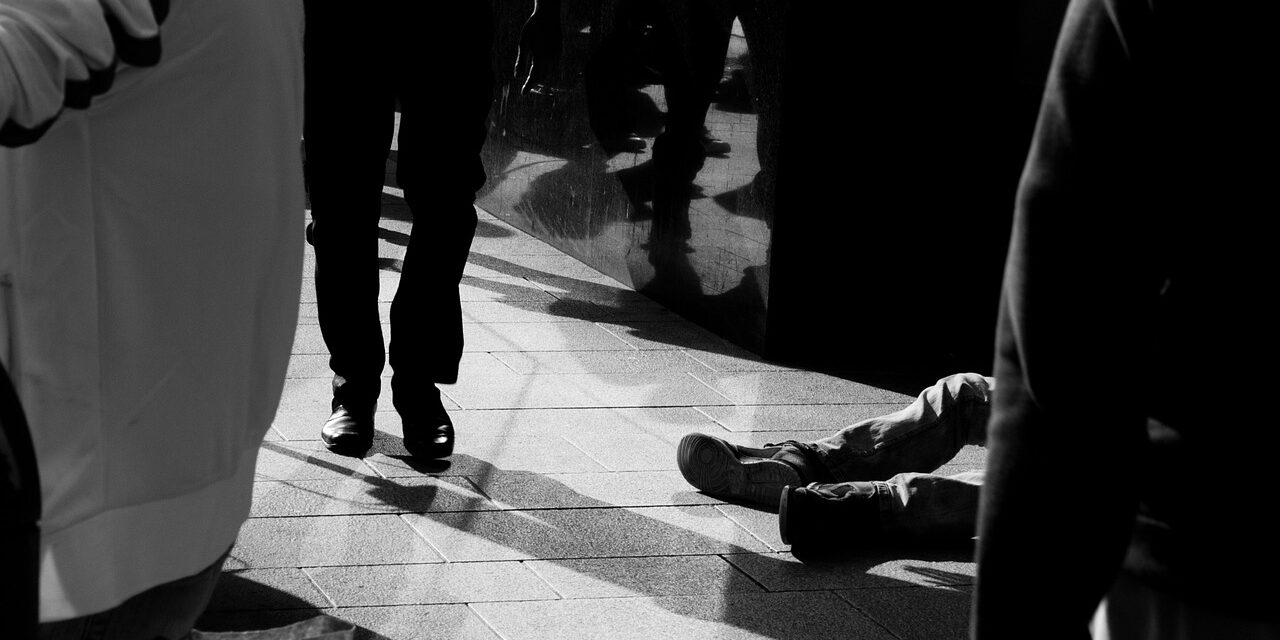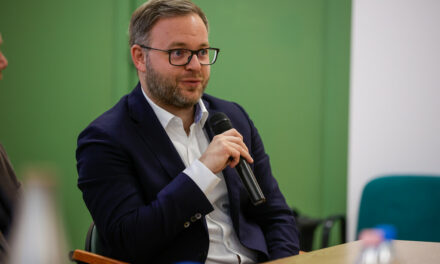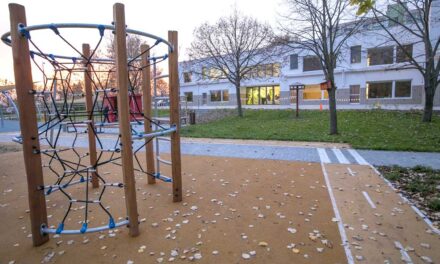Those who have lived and worked in a European country can speak most authentically about Western prosperity and the myths associated with it.
After the dismantling of the Iron Curtain, the Hungarians, like the people living in our region, watched with envy all the prosperity from which they were excluded due to their belonging to the socialist camp. Since joining the EU, we have become closer to the Western world in terms of economic development, and the differences in living standards have become the terrain of daily political battles. Those who have lived and worked in one of the European countries can speak most authentically about the level of Western prosperity.
***
We hitchhiked through an app. We became traveling companions of a middle-aged transporter, who told us during the conversation that he and his wife had lived in Denmark for 12 years, but had recently moved home. The reason is simple. Over the years, the Danish labor market has undergone significant changes. Well-paying jobs have run out, more specifically, they are reserved for Danes, and for jobs that do not require special qualifications, you have to compete more and more with migrants. Finally, the Hungarian couple decided that
living in their own apartment in the countryside, they can get by on their earnings better than in Denmark, where the cost of renting an apartment and the upcoming schooling of the children eats up the difference between the wage levels of the two countries.
The mother worked as a florist, the head of the family earns his living as a driver. He also added that they have to work a lot at home as well, but no one humiliates them by saying that they have to respect themselves as guest workers.
After hearing the story, we also asked others about working abroad who have either visited one of the rich European countries or still live there. Most people in England reported that
a few years ago, the adventure in England promised a lot of new things and experiences, not to mention good earning opportunities, but today they would not go for it.
Those who managed to fight for a good job in the past were able to make a living, but nowadays the jobs available to guest workers do not pay enough to make a decent living.
***
, the videos of the Facebook page Leggyobb camionos, followed by 26,000 people We call the owner of the mentioned page Gábor, as he wishes to remain anonymous. The company has a national sentiment, but is not affiliated with any party. He makes videos just for his own entertainment, in which he typically presents the life of a trucker through concrete, tangible problems, seasoned with some wry humor. Most recently, he drew the ire of commentators by sharing a video about the Norwegian price level.
- I've already seen six hundred thousand videos about how everything abroad is a penny cheaper than in Hungary, when someone trumped this by saying that he bought cola in Bulgaria for a fraction of the domestic price. There was a sign next to him about the 40 percent discount, but it was clear from the comments that everyone was convinced of it: the Bulgarians already live better than the Hungarians - says Gábor with a laugh.
He decided to color the picture, so when he stopped to rest in Norway, he bought a case of beer, English chili cheese, a bar of chocolate, a liter of soda, three rolls, ten dekas of ham and the same amount of salami at a local discount store. He paid HUF 7,500 for all this. More than 4,800 comments were collected during the video.
– I knew that my page would immediately be flooded with people explaining to me why it is the way it is, why so much is so much, and yet the Norwegians live much better. I didn't say a single word that Norwegians live badly, I just wanted to show the prices, says Gábor.
He adds that it is pointless to refer to the Norwegian average salary of HUF 1.3 million, since you have to live there, not at home. And, of course, many people earn below average in Norway, and almost everyone is a guest worker.
The presentation of the environment of an average Norwegian school, the condition of German parking lots or public roads also caused tremendous anger among opposition Internet users. Gábor often criticizes the quality of Hungarian roads and highways, but at the same time, he also reports in his videos that Western and Northern Europe are getting dirtier and that public spaces are neglected.
The German highway network is in ruins, hundreds of bridges should be renovated, according to him, he regularly passes over those on which the speed limit has been reduced to 60, their technical condition is so bad.
"I can't leave it without saying a word when they're in the middle of nowhere." I've traveled all over Europe over the course of two decades, but I can see that something has gone terribly wrong for some time. The old dynamism has been shot, this West is not what we saw when communism collapsed. The trouble started in the middle of the 2000s, and since Covid and the sanctions, the standard has dropped sharply.
From his conversations with foreigners, it became clear that the huge difference between the standard of living in Central and Western Europe has now been significantly reduced.
During his work, he visited countless factories. He sees it as typical that European companies, instead of paying Hungarian or European guest workers, want to employ immigrants who work much cheaper. Those who succeed are mostly untrained, so there is no question of quality work. Not to mention problems beyond the world of work. Recently, he was parked in an industrial park surrounded by cameras, barbed wire, iron gates and concrete walls, and was advised to stay inside the fence for the evening (he could have driven for an hour at the most, because of the mandatory rest, he would not have reached his destination 250 kilometers up the road).
– If I go out, they either break open the cab, or drain the diesel, or take care of the cargo, or all three at the same time. In the once safe Sweden, there is not a parking lot where they are not chopped up. The tarp is yours.
His colleagues in the West no longer brag about their salaries, while prices have gone down there as well. The situation of unskilled workers is so much better than at home that they can borrow a slightly newer car from their salary abroad.
– I'm not saying that the situation is much better at home, but if I say that it's not much better in the West, I'll be crucified. Life in London, Berlin or Stockholm, i.e. the living conditions of blue-collar workers, is not as RTL presents it, or as it is imagined on the fourth floor of the block of flats, he says. And adds:
doubters look at East Germany, which still hasn't caught up since reunification...maybe it will catch up now that the West is in the ground.
During the conversation, Gábor emphasizes that, contrary to popular belief, he has never heard a single Westerner complaining about the Orbán dictatorship.
– The reality is that in most cases they express their sympathy when Orbán is mentioned. It is incredibly popular with the French, I mean with white people. And in the Balkans, they are absolutely adored.
***
Viktor Schauer's experiences are eerily similar to what Gábor said. Using his original Facebook profile, the middle-aged Hungarian entrepreneur talks about his experiences in Germany, and his name is slowly becoming known throughout the country.
Viktor, who has lived in Germany for the past ten years, provoked the anger of opposition commentators by sharing a video in which he talks about how it was a refreshing experience for him to finally spend a pleasant day in Bajan without encountering migrant gangs anywhere. Viktor Schauer's story also includes the fact that he was also a successful entrepreneur at home. For personal reasons, after her divorce, she decided to start a new life in Germany. Things turned out so well that he founded his own business using his profession as a painter and painter. He has received a lot of orders, but he adds that
it has not been worth taking a job in Germany for ten years as an employee or with a band.
– If I were to sit next to someone, it would be difficult for me to earn more than 1,700 euros. This money was worth much more in Germany a few years ago, but even then, with the costs abroad, you couldn't change the world with it, says Viktor.
And the Germans have not been satisfied with the way their economy is working for quite some time, even though basic economic stability still created security, and decades of experience have shown that weaker periods are followed by recovery. However, the pattern has not been working for some time. While there are plenty of job opportunities, prices have risen to such an extent that a single worker can barely make ends meet, and the salary for jobs that do not require qualifications is barely enough to survive.
"Even if you're looking for twice as much outside, it doesn't mean double the standard of living with the prices outside."
To illustrate, he says that when he moved out, a döner cost 2.5 euros, today it costs around eight, and in Berlin it is more like ten. The price of a döner is a good benchmark because it is typically a cheap but substantial meal, a typical working lunch.
- Ever since the Nord Stream was launched, the German economy has been in deep flight. The prosperity of the Germans was built on their own industry and cheap Russian energy, Viktor explains.
He doesn't even understand why some people are surprised that the AfD is gaining strength. According to him, no German worker earns much more than those from Central Europe, which means that they don't take home more than 2,500 euros either.
- The sublet is on the lower end of a thousand euros, and then you live in a modest neighborhood. In addition, an electricity bill of at least 200 euros must be calculated. And you don't go far without a car, the tax of which has doubled, so today the monthly car insurance is approximately 150 euros.
However, the Hungarian entrepreneur eventually moved home with his family to Hungary due to the deterioration of public security and the violent rise of the woke ideology, because he did not see the healthy development of his children in the Western model state ensured.
- As a painter, I also earn HUF 30-35 thousand a day at home, which adds up to around 700 thousand at the end of the month. And my children go to a kindergarten group or class with Hungarians, and I don't have to worry about men who imagine themselves as women sensitizing them to "acceptance"
he explains.
Both Viktor and Gábor emphasized:
there is no question that Europe has collapsed. Rather, everyone is experiencing a halt in development, which has resulted in a slow decline in living standards.
Westerners feel on their skin that the direction is not good. But European prosperity, especially the prosperity of the upper layers of the middle class, will remain for a long time even under these conditions. Also, the hope that everything will turn out well again after the stagnation endured with patience is a huge reserve for the current political system. Skeptics, however, see the West as just enjoying the advantage and accumulated wealth it has built up over the past 70 years. When they get to the bottom of the pot, many people will be very disappointed.
Featured image: Illustration/Paolo Trabattoni/Pixabay













